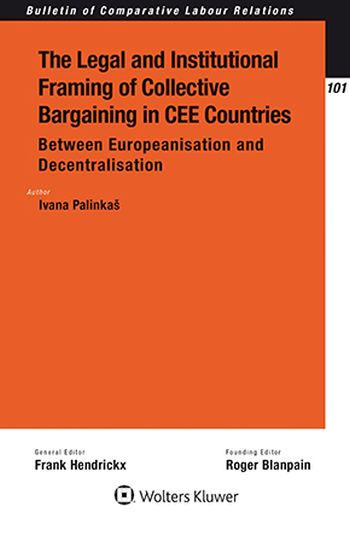
The Legal and Institutional Framing of Collective Bargaining in CEE Countries
scrutinises the legal and institutional framework for collective bargaining in Central and Eastern Europe (CEE), including its development in the past two decades. The formerly communist countries of CEE have witnessed a profound transformation of their labour laws since the 1990s and, especially, after their accession to the European Union. Today, in comparison to the other Member States, they continue to have weak trade unions and employers’ associations and an underdeveloped system of collective bargaining. Moreover, the recent economic and financial crisis highlighted the need to invest further efforts in bringing the CEE industrial relations closer to the ‘old’ Member States in order to facilitate more meaningful enforcement of the EU-wide economic and social policies. This is the first book to discuss this important matter in depth.What’s in this book:
Focusing on four current CEE labour law regimes – in Slovenia, Slovakia, the Czech Republic, and Poland – that also have different collective bargaining trends and can be said to exemplify some of the main legal and institutional frameworks for collective bargaining that the CEE countries have developed, the author addresses the following major issues:
How this will help you:
In support of the study’s general finding that the laws in CEE countries could provide more stimulus for sectoral and cross-sectoral collective bargaining, the author offers deeply informed recommendations and insights into legal shortcomings and pinpoints how the existing legal frameworks can be enhanced. Any professional or academic in the field of industrial relations, and particularly those concerned with complex transitions such as those occurring in the CEE countries and elsewhere in the world, will find this book of great value.